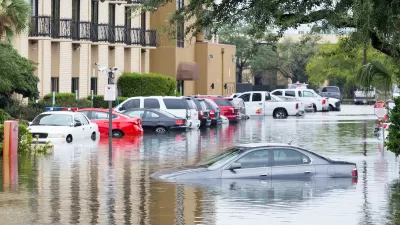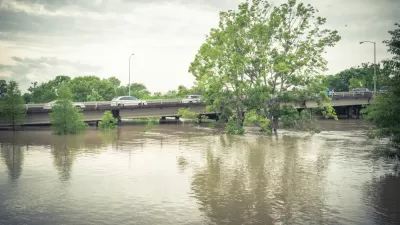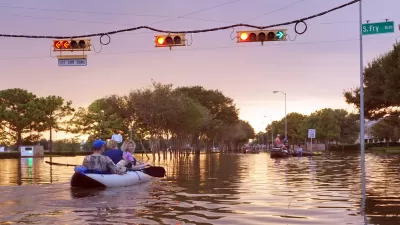Living in Texas this week has reminded me how dependent we are on infrastructure—and how interdependent these systems are. It's time we started investing in infrastructure as if it really matters to our daily lives.

Sitting here in central Houston this week, with no water, spotty internet, and the looming fear that we would lose power and heat, I kept thinking about John Snow.
Snow was the guy who solved the mystery of the cholera epidemic in London in the 1850s, which took thousands of lives. In so doing, he unleashed a remarkable modernization movement in sanitary infrastructure, which has led to a revolution in public health. This sanitary revolution also set the tone for the way cities — and, indeed, all human settlements — work today: We depend almost entirely on centralized infrastructure to provide us with the things we need to live a civilized life.
There’s no question that we in the United States are living off our past investments in infrastructure without building the new stuff we need or even upgrading the old stuff we have. This is often cast in terms of economic competition with China and other developing countries, but it’s much more personal than that — it’s a matter of maintaining the quality of our lives every single day. Yet our general sense of inertia and our unwillingness to make long-term investments puts us at risk every day, as the ERCOT crisis has shown.
FULL STORY: Infrastructure Isn’t An Abstract Concept. It’s Very Personal.

Maui's Vacation Rental Debate Turns Ugly
Verbal attacks, misinformation campaigns and fistfights plague a high-stakes debate to convert thousands of vacation rentals into long-term housing.

Planetizen Federal Action Tracker
A weekly monitor of how Trump’s orders and actions are impacting planners and planning in America.

San Francisco Suspends Traffic Calming Amidst Record Deaths
Citing “a challenging fiscal landscape,” the city will cease the program on the heels of 42 traffic deaths, including 24 pedestrians.

Adaptive Reuse Will Create Housing in a Suburban Texas Strip Mall
A developer is reimagining a strip mall property as a mixed-use complex with housing and retail.

Study: Anti-Homelessness Laws Don’t Work
Research shows that punitive measures that criminalized unhoused people don’t help reduce homelessness.

In U.S., Urban Gondolas Face Uphill Battle
Cities in Latin America and Europe have embraced aerial transitways — AKA gondolas — as sustainable, convenient urban transport, especially in tricky geographies. American cities have yet to catch up.
Urban Design for Planners 1: Software Tools
This six-course series explores essential urban design concepts using open source software and equips planners with the tools they need to participate fully in the urban design process.
Planning for Universal Design
Learn the tools for implementing Universal Design in planning regulations.
Heyer Gruel & Associates PA
JM Goldson LLC
Custer County Colorado
City of Camden Redevelopment Agency
City of Astoria
Transportation Research & Education Center (TREC) at Portland State University
Jefferson Parish Government
Camden Redevelopment Agency
City of Claremont





























